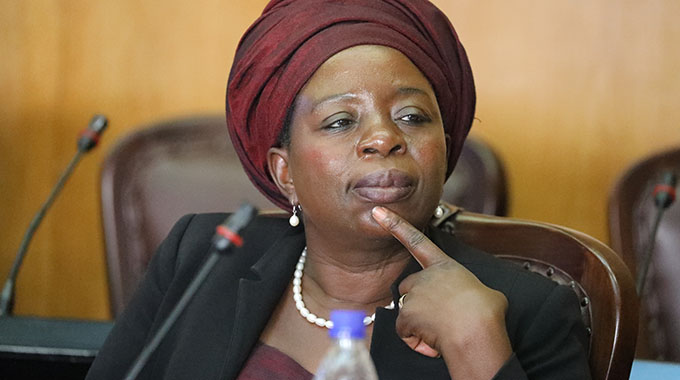Editorial Comment: Tighter lockdown needs everyone to cooperate

Once again the Government is having to take swift action to intensify the lockdown put in place to slow transmission of Covid-19 largely because many, possibly most, Zimbabweans have become complacent and are not adhering to the rules and guidelines required even when transmission rates are low.
With rising infection and death rates, just under 600 new confirmed cases in a week and 26 deaths, with probably at least that number of untested infections, obviously something had to be done, and done quickly, to stop a third wave blossoming.
In making the move, Vice President Constantino Chiwenga, who is the Minister of Health and Child Care decided to keep the economy functioning as much as possible and minimise the economic damage.
So almost all businesses, including those in the informal sector, can stay open, but with reduced hours. Half of office workers outside essential sectors now have to work from home and everyone in business has to follow the strict rules on temperature scanning, sanitising, masking and social distancing.
The Vice President did stress that enforcement would be tough, but one reason he was able to keep so much open was the general upgrade in the retail sector of safety precautions. Almost all shops now do follow the “new normal”.
Even in the SME and informal sectors there has been a major, and long-desired, partial formalisation with more property owners developing or converting premises to proper markets and having security, mask and sanitisation checks at the entrances.
This growing movement from shacks and tents on roadsides to booths and stalls in decent-looking markets is something we needed anyway and the result is one of the gains, along with Zupco, that we have won from Covid-19.
Even the Avondale Flea Market, long an eyesore, is suddenly a well laid-out and well-proportioned semi open-air market and an example of what can be done with very modest investment and a lot of good and tight management.
As we continue with our efforts to stop people blocking roads, verges and pavements, these private-sector initiatives of building conversions and flea-market upgrades are the way forward and entities like Harare City Council should either be copying them, or entering into public-private partnerships.
Many of those being moved at the moment complain they have nowhere else to go and yet it would not cost much to put in, for example, a properly managed market on the north-west corner of the intersection dominated by the Mbudzi roundabout.
That would ease congestion, give these tiny business a secure area in exchange for their small daily rents, which would include the small US$1 a day tax, and ensure a general dramatic improvement in public health and public hygiene.
Shopkeepers and others in the retail trade are likely to take the enforcement warnings seriously since the last thing they want is a return to a full level four lockdown. Better to stay open and take the time and trouble to police customers than be closed again. And those whose business is done in offices already know what to do.
It costs a bit more in telecommunications charges to have staff working from home, and the staff will hardly be thrilled in trying to do this in the middle of the school holidays, but there is no need to reinvent the wheel, just implement again what has been done successfully.
Where Vice President Chiwenga has put in major new controls, using his public health powers as Health Minister, is on the less essential side. He basically wants to bar gatherings and especially those where discipline can break down.
So he has banned them again. This affects the quality of life, but not the economy, so it is an irritating nuisance not something that stops people earning a living. We can survive without parties.
Restaurant owners are probably the hardest hit, retreating back to takeaways, and artistes will be saddened by the ending of public performances just after a very modest reopening.
Bottle store owners have limited hours and are now being tasked with not only stopping people drinking inside, but also outside their stores, but legally public drinking was a poorly enforced offence for decades before Covid-19.
The ban on church services was an obvious move. If everyone was as responsible as some of the long-established liturgical churches, a compromise might have been possible. But regrettably that was not the case.
Enforcement will also have to be done on those who have open air services, and perhaps the time has come for those whose religious practices are of this nature to lease and fence stands and start thinking about how architecture can be developed, perhaps open courtyards, when they are allowed to gather again.
One sign of the laxity that has crept in is the general ignoring of the 10pm curfew. While some on the road at that time are essential workers, most appear to be socialising or on their way home from socialising.
The modest clampdown last week generated a lot of ill-considered resentment and people need to realise that these rules are there for the public good, not to make life difficult. The main reason for a curfew is to stop socialising and clamp down on social gatherings, since that is the reason they are broken, and enforcement appears to be required for that reason.
While the vaccination programme continues, and more supplies are imminent, we had 411 218 fully vaccinated people, those with both doses, by Saturday and this is a wonderful achievement, but still only 4,11 percent of the way to our 10 million target.
So we have to keep the rest of the measures, and when we get slack we have to tighten.
Government has kept the human and economic damage low by reacting early and swiftly when infection rates rise, and this works when we all follow the rules and protocols.
It is when we relax that the trouble arises and that is why the health experts wanted a tightening now, rather than wait for something more extreme when a third wave was rampaging.
The only way we can avoid that more extreme tightening is to take today’s more modest tightening seriously and for everyone to follow the rules in full.










Comments